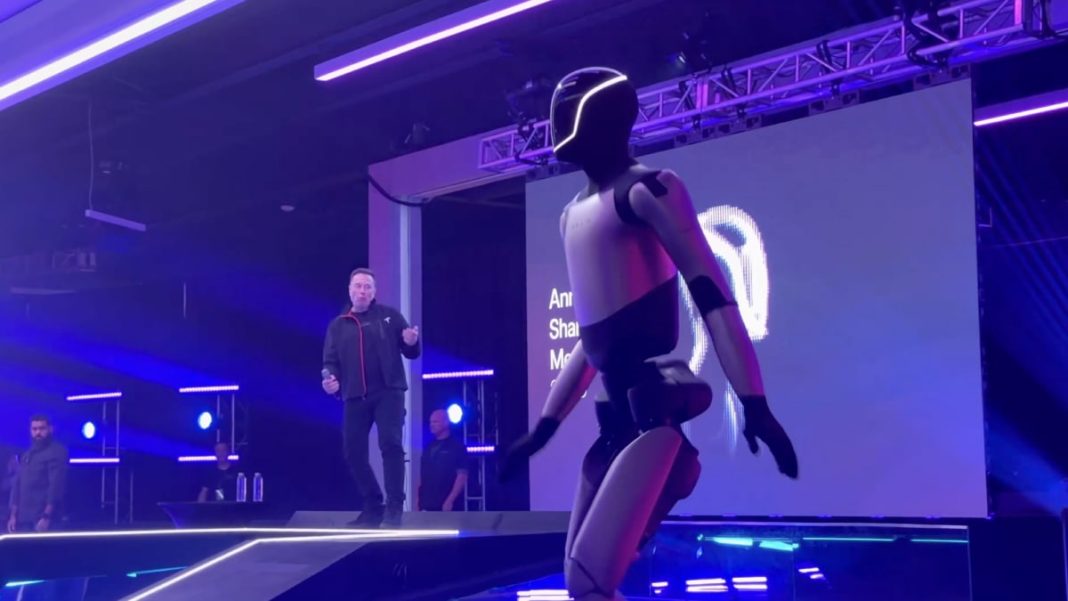Elon Musk: Tesla Optimus Robots Will End Poverty and Crime
Elon Musk has declared that Tesla’s Optimus humanoid robots represent the “only way” to eliminate global poverty and crime, following the approval of his massive $1 trillion compensation package.
Key Takeaways
- Musk claims Optimus robots are the “only way” to eliminate poverty and make work optional
- Robots could boost global economy by 100x and sell for $20,000-$30,000
- Optimus could prevent crime through 24/7 surveillance instead of prisons
- Musk’s $1 trillion pay package tied to selling 1 million robots in a decade
At a recent Tesla shareholder meeting held after investors re-approved his compensation plan, Musk outlined a future where Optimus robots reshape the global economy and solve humanity’s biggest social problems. He stated that widespread deployment of the humanoid robots, currently in development, would create an era of “sustainable abundance and universal high income.”
“People often talk about eliminating poverty, giving everyone amazing medical care. There’s actually only one way to do that, and that’s with the Optimus robot,” said Musk.
Economic Transformation Through Robotics
Musk’s performance-based compensation plan is directly tied to Tesla achieving ambitious goals, including selling one million Optimus robots within the next decade. Each robot would be five times more productive than humans and capable of working continuously, potentially making human labor largely obsolete.
Crime Prevention Through Robot Surveillance
Beyond economic transformation, Musk proposed a radical role for Optimus in the justice system. Instead of building more prisons, he suggested deploying robots to “follow you around and stop you from doing crime.” While the practical and ethical implications of constant robot surveillance remain unaddressed, Musk expressed confidence in his techno-utopian vision.
Development Timeline and Pricing
The Tesla humanoid robot project remains in the design phase, with complex features like robot hands still under development. When mass production begins, Optimus is expected to sell for $20,000 to $30,000 – comparable to a family car. However, Musk acknowledged the transition would involve “a lot of trauma and disruption along the way.”
The ambitious vision positions as central to solving some of humanity’s most persistent challenges, though the timeline and practical implementation remain uncertain.




